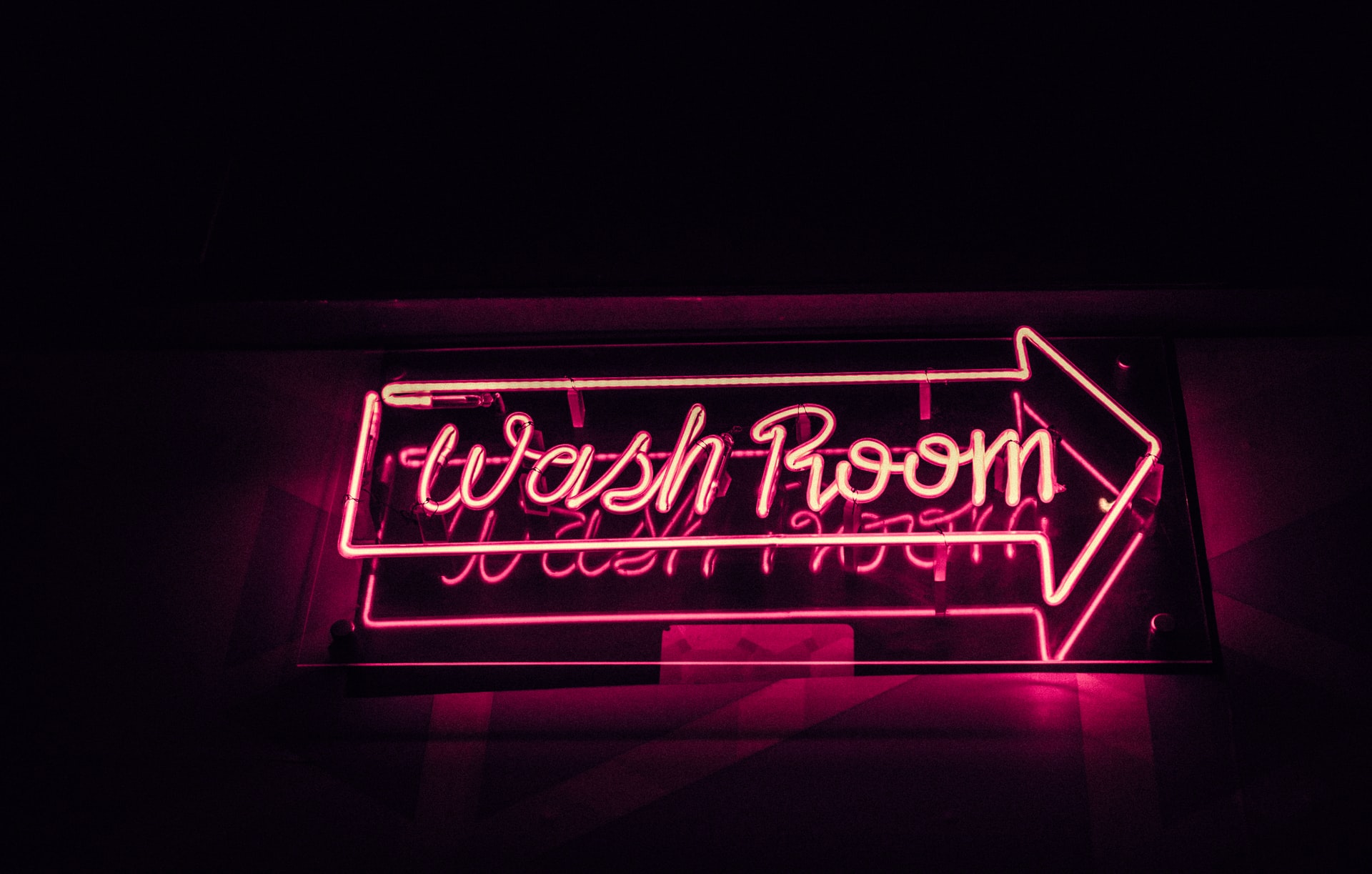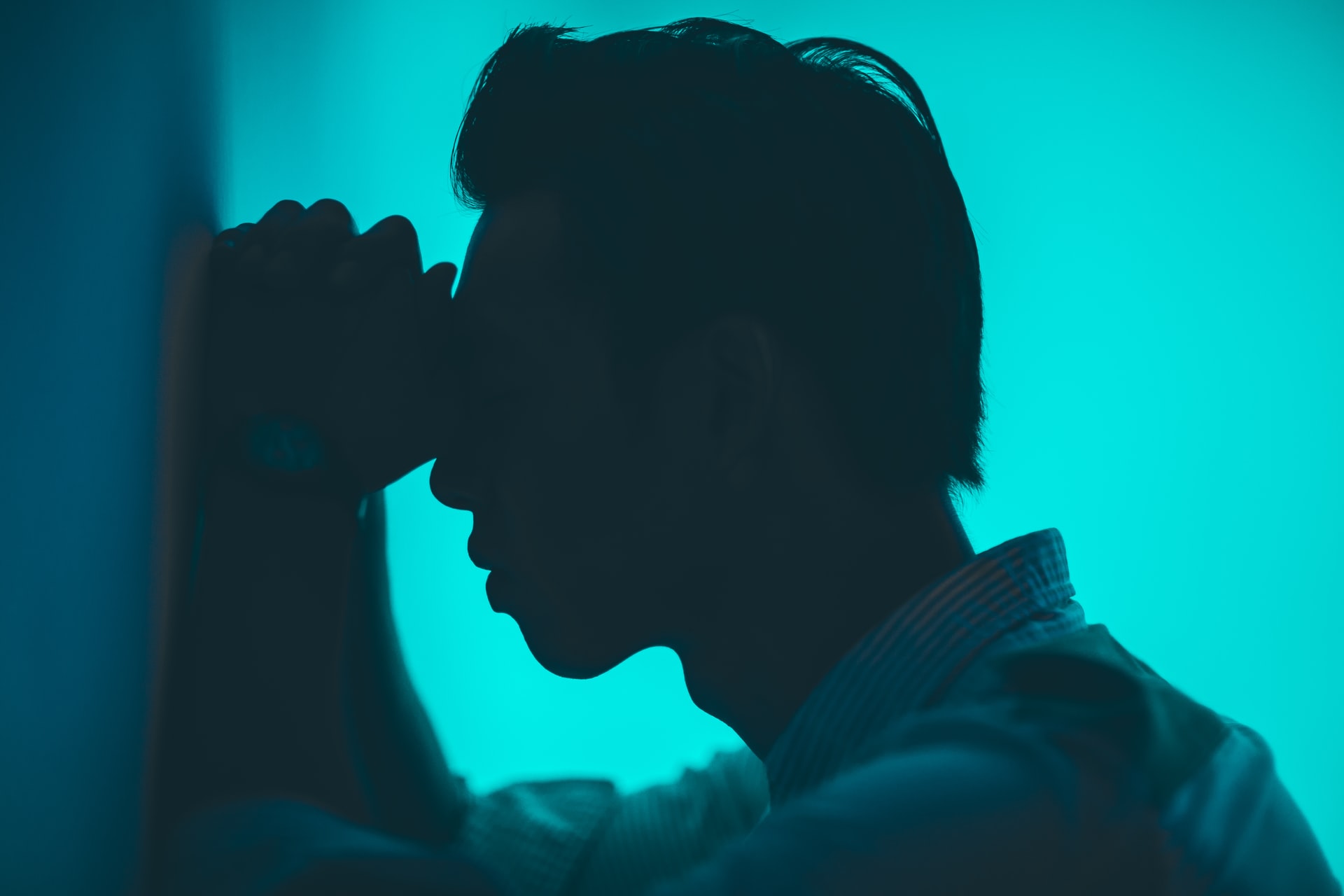If you’re tired of spending too many of your waking, and sleeping, hours in the bathroom, then you may have an overactive bladder. An overactive bladder is not a disease, but rather a complex of symptoms that is present in up to 30-40% of men and women respectively.
You might be asking yourself some of the following questions:
- How do I know if my bladder is overactive?
- What is the main cause of overactive bladder?
- Is peeing 20 times a day normal?
- Is it bad to pee every 30 minutes?
- Why do I need to pee after peeing?
- How many times is it normal to urinate at night?
These are some excellent questions, and we have some excellent answers. Dr. Google has led you to the experts. Urologists with VirtuCare. We specialize in getting people relief in the bathroom (just pee, not poop for the record).
We will guide you through the most common overactive bladder symptoms to ensure that you’re on the right path. Don’t start investigating bladder treatments until you’re certain that you actually have an overactive bladder. We’d hate for you to be prescribed unnecessary medications or worse have an unnecessary surgery if something else were going on.
Are you ready? Great! Let’s get started.
What are the most common overactive bladder symptoms?
Remember that an overactive bladder is not an illness. It’s a constellation of bladder symptoms that falls outside of normal urinary patterns. The most common overactive bladder symptoms include the following:
Urinary frequency
So how frequent is too frequent? If you are urinating less than every 2 hours, then this is considered urinary frequency. For the sake of this discussion, we are just talking about daytime urination at the moment.
To answer some earlier questions, “is peeing 20 times a day normal?” No it is not. “Is it bad to pee every 30 minutes?” Maybe “bad” is not the right word. Frustrating, yes. Normal, definitely not.
On the flip side, if you can hold your bladder for 2-4 hours at a time, then you probably don’t have urinary frequency. Some folks have iron bladders especially when they are younger. They then come to see me in my private practice and complain about peeing every 3 hours. This is normal my friend. Your bladder is not meant to be stretched to the limit. Depending on your fluid intake, urinating every 2-3 hours is not considered urinary frequency.
Urinary urgency
The best way to explain urinary urgency is, “if ya gotta go, ya gotta go.” Urinary urgency is the sudden urge to urinate with little to no warning. Rather than your bladder calmly filling with urine and sending a signal to your brain to find the nearest facility, your bladder suddenly is screaming “FIND THE BATHROOM NOW!!!!” Women, children and animals better watch out. Because you’re getting to that bathroom and nothing is going to stand in your way.
Why does urinary urgency happen? The signaling pathway from the bladder to the brain is out of whack. Your bladder is more irritable, often at smaller capacities, when you have an overactive bladder. This overactive bladder symptom can sometimes lead to . . .
Urinary urge incontinence
Now your bladder isn’t just screaming “run to the bathroom!” it’s not even waiting until you get there. Urinary incontinence is the involuntary loss of urine. When it’s associated with a sudden urge then we call it urinary urge incontinence.
Sometimes urge incontinence can occur with no warning at all. If you’ve ever been washing dishes, and all of a sudden you’ve made tee-tee in your pants (that’s the sweet Southern way of saying urinated), then you’ve experienced urge incontinence.
It’s important to remember that this type of bladder leakage is different from stress incontinence. Stress incontinence is the involuntary loss of urine with coughing, sneezing, or jumping. Any “bearing down” activity puts a “stress” or pressure on the bladder and your urethra can’t hold in the pee. Sometimes women have both stress and urge incontinence. However, if your main concern is leakage with activity, then you may not have an overactive bladder.
Nocturia
The final overactive bladder symptom is waking up at night excessively to urinate. This is often the most frustrating overactive bladder symptom because who wants to wake up at night when you’re dreaming about Nashville hot chicken (don’t judge me). Nocturia is often the most difficult symptom to relieve as well.
How many times is it normal to urinate at night? That’s a great question. It depends on your age. In a review of available studies the percentage of men and women who wake up at night to urinate was:
- Men 20 – 40 yo: at least 1x night 35%; at least 2x night 16%
- Women 20 – 40 yo: at least 1x night 44%; at least 2x night 18%

- Men >70 yo: at least 1x night 93%; at least 2x night 60%
- Women > 70 yo: at least 1x night 77%; at least 2x night, 62%

As we get older (yes getting older sucks), our kidneys tend to continue working at night. Instead of getting some rest, your kidneys continue to produce urine at night. In these cases it’s not the bladder’s fault you’re waking up at night to urinate. The kidney is to blame.
What are NOT overactive bladder symptoms?
It’s important to also know when frequent bathroom trips are possibly related to something else. An overactive bladder is a diagnosis of exclusion. Meaning that there isn’t some underlying disease process causing you to live in the bathroom. If you have any of the below symptoms, then you may not have an overactive bladder.
Blood in the urine
Hematuria is the finding of blood in the urine. This can be visible to the naked eye (gross hematuria), or only detected on a urine sample (microscopic hematuria). Regardless, hematuria is never associated with an overactive bladder.
Depending on the degree of blood present, your age and underlying risk factors, you should probably have this evaluated. The reason for this is that hematuria can be associated with the following diseases:
- Bladder cancer
- Kidney cancer
- Stones of the urinary tract
- Urinary tract infections
- Urinary obstruction
If you’ve seen the blood yourself, then you MUST be seen by a urologist. If you can’t seem to find one, then dial up a board-certified urologist such as me (Dr. Joe Pazona CEO and founder of Virtucare) for a telemedicine visit within 24 hours. I can help guide you through your next steps.
Burning with urination
If it feels like razor blades are cutting through your pee hole (urethra) as you pass urine, then you probably have something other than an overactive bladder. Dysuria is a symptom most commonly seen with bladder infections (UTIs). However, it can also be seen with sexually transmitted infections (STI), cancer and low estrogen levels after menopause.
Don’t suffer in silence. Get some help today.
Pelvic pain
An overactive bladder shouldn’t hurt. Now sometimes the urge to urinate can be so strong, it’s associated with a bladder spasm that is uncomfortable. However, if the pain is severe or unrelated to urinating, then an evaluation is necessary.
Problems with the urinary tract, gastrointestinal tract, and lady parts can present with pelvic pain. It’s probably a good idea to start with your primary care provider who can steer you in the right direction. Then you can determine if you need a pee (urologist), poop (GI) or lady business (OB/GYN) doctor.
What else can cause overactive bladder symptoms?
Not everyone with urinary frequency, urgency and waking up at night to urinate has an overactive bladder. It’s important to rule out other non-serious causes of overactive bladder symptoms before you get placed on unnecessary medications or even worse, have an unnecessary surgery.
Polydipsia
Polydipsia is the fancy doctor term for drinking too much fluid. It’s simple math ladies and gentlemen. What goes in, must come out. It always amazes me how patients end up on 5 different overactive bladder medications for their frequent urination, only to find out that they’ve been drinking a gallon of sweet tea a day (yes sweet tea is delicious but a gallon is bit much and it’s incredibly unhealthy for you and your bladder).
The best way to evaluate polydipsia is to perform a voiding diary. Grab a piece of paper, a measuring cup, and track a few days of:
- When and how much you drink.
- When and how much you urinate.
Since the average bladder holds 300-350 ml (10 – 12 oz) you’ll be able to tell pretty quickly if the main issue is an overconsumption of fluid rather than an overactive bladder. Overactive bladders tend to hold a small amount of urine.
Another thing that you may notice with polydipsia is a lack of waking up excessively at night to urinate. That is unless you’re like some of my patients who keep a full glass of water on their nightstand. If your bladder calms down during the night, then your symptoms are probably not due to an overactive bladder.
Medications
Certain medications, especially water pills (diuretics), will also cause overactive bladder symptoms. Similar to drinking too much fluid, diuretics are forcing more fluid into the bladder. This is not an overactive bladder. Diuretics are commonly used to treat high blood pressure and heart conditions. Sometimes they are a necessary evil. We don’t recommend just stopping them because you’re tired of urinating too frequently. Contact the prescribing physician to see if any alternative medications are available.
Nocturnal polyuria
Now if you’re urinating excessively at night, you might also have nocturnal polyuria (overproduction of urine at night). As we stated earlier, the kidneys tend to work harder at night as we age. If you notice that you have minimal daytime overactive bladder symptoms, and urinate large volumes at night, then it’s possible your bladder is not the problem.
Patients with overactive bladders can urinate excessively at night, but typically the volume of urination is much smaller than typical. With nocturnal polyuria you are peeing with a full bladder every couple of hours. Measuring your urine volume at night, although potentially messy in a dark bathroom, is the best way to differentiate between them.
What other medical conditions can cause overactive bladder symptoms?
Several medical conditions can cause overactive bladder symptoms. These conditions should be addressed before treating overactive bladder symptoms with traditional OAB therapies. Again, we’d hate for you undergo unnecessary treatments when the root cause of your overactive bladder symptoms is something other than a problem with your bladder.
Obstructive sleep apnea
If you snore at night, then you may have obstructive sleep apnea (OSA). Essentially, you’re not getting oxygen to your lungs and having multiple episodes of apnea (not breathing which isn’t great) per night. OSA is associated with waking up at night excessively to urinate. In fact, treating obstructive sleep apnea with a CPAP machine has been shown to decrease the number of times people wake up at night to urinate.
Yes these sleep masks can be irritating. But, OSA is a serious medical condition that not only affects your bladder but also your heart, lungs and overall health. If you snore, please get evaluated today! Your sleeping buddy will thank you as well.
Interstitial cystitis
Interstitial cystitis (IC) is a constellation of bladder symptoms. IC usually causes urinary frequency and urgency. The differentiating symptom from an overactive bladder is pelvic pain. With IC there is often a severe pain associated with a full bladder that is relieved with urination. The diagnosis and treatment of IC is quite challenging. If you think you may have IC, then you definitely should see a urologist.
Benign prostate hyperplasia (BPH)
BPH is the most common cause of urinary symptoms in men over the age of 45. An enlarged prostate may lead to a blockage of the bladder and therefore a slow urinary stream. But BPH can also cause overactive bladder symptoms such as urinary frequency, urgency and nighttime urination.
How can you determine if overactive symptoms are caused by BPH or an overactive bladder? Testing with a urologist can sometimes differentiate between them. If a man is retaining urine in the bladder then BPH is likely contributing. A slow urinary flow rate can also be detected with non-invasive testing from home or at the urologist’s office.
Other times, it’s trial and error to determine the cause of overactive bladder symptoms in men.. We often recommend treating an enlarged prostate first because it’s safer to assume and treat a blockage, than to miss someone who’s not emptying their bladder. If the overactive bladder symptoms improve, then we assume BPH was the cause. If not, then you may also have an overactive bladder.
Low estrogen levels
The bladder requires adequate estrogen levels to function properly. After menopause, estrogen levels in women go to zero. As a result, the bladder suffers. Overactive bladder symptoms may appear or worsen if estrogen is not replaced. There is some evidence that use of vaginal estrogen improves overactive bladder symptoms. It’s unclear whether oral hormone replacement therapy helps as well.
Obesity
Yes, obesity is a medical diagnosis. Not only is being severely overweight the cause of countless serious medical conditions (heart disease, diabetes, strokes, liver disease), but obesity is also a predisposing factor to an overactive bladder. When you consider that extra belly fat is going to sit on top of the bladder, it shouldn’t be a surprise that obesity is associated with overactive bladder symptoms. Losing weight will relieve the pressure on the bladder.
Constipation
If a bunch of fat can press on the bladder causing overactive bladder symptoms, then so can a bunch of poop. Infrequent, hard bowel movements will cause a compression of the bladder in the pelvis. Daily soft bowel movements can definitely improve overactive bladder symptoms. A number of over-the-counter remedies are available, but anecdotally Miralax and Metamucil together seem to work best.
Urinary retention
If you’re not emptying your bladder completely, then you will have overactive bladder symptoms. A constantly full bladder will cause urinary frequency, urgency and incontinence. Typically, these overactive bladder symptoms are associated with a slow urinary stream. Although most common in men with an enlarged prostate, urinary retention is occasionally seen in women as well. An ultrasound measurement or catheter placement (oh boy) will be able to determine if you are retaining urine in the bladder.
Neurogenic bladder
Overactive bladder symptoms can be caused by neurological disorders such as multiple sclerosis, strokes and spinal cord injuries. Any process that interrupts the signaling pathway between the bladder and brain can lead to overactive bladder symptoms. A diagnosis of a neurogenic bladder requires an underlying diagnosis of neurological condition.
If you’re having any associated headaches, tingling, numbness, muscle weakness or changes in your vision with new overactive bladder symptoms, then notify your primary care doctor immediately and get checked out! Otherwise, if you’re only having overactive bladder symptoms, I don’t want you freaking out that you have a brain tumor because you’re going to the potty more frequently.
Bladder cancer
A tumor sitting in the bladder can cause overactive bladder symptoms. Now don’t freak out. For every 100 people with overactive bladder symptoms, less than 1 would actually have bladder cancer without other warning signs. Blood in the urine is the most common sign of bladder cancer. That’s why it is so important to have an evaluation with a urologist if you have blood in the urine. X Ray tests and a look in the bladder will ease any concern of something more serious hiding in your bladder.
UTI
Again this should be easily distinguished from an overactive bladder. A bladder infection is typically going to have a quick onset of severe urinary urgency/frequency and burning with urination. Urine testing followed by a course of antibiotics should relieve most of the symptoms within 24-48 hours.
Kidney stones
As kidney stones pass from the kidney to the bladder they travel down the ureter. When stones get stuck at the ureter/bladder opening (UVJ or ureterovesical junction for the nerds in the room), then the stone can cause urinary frequency and urgency. The stone irritates the bladder as it’s knocking on the door.
A kidney stone should be suspected if overactive bladder symptoms are new, sudden and associated with any pain or blood in the urine. X-ray testing like a CT scan will be able to rule out if a stone is the cause of overactive bladder symptoms. Also see: What Will the ER Do For My Kidney Stones?
What evaluation should be performed for overactive bladder symptoms?
All medical evaluations should start with a thorough history. A detailed history can often uncover many contributing factors to overactive bladder symptoms. Excess fluid intake, especially beverages with caffeine, sugar or alcohol can cause urinary overactive bladder symptoms. As above, you want to make sure that OSA, low estrogen levels, obesity and constipation are addressed as well.
A physical exam typically does not uncover anything that we didn’t otherwise know from our history. That’s why a telemedicine consultation with a board-certified urologist is a great way to evaluate your overactive bladder symptoms. Eliminate the hassles of traveling to an in-person specialist. Get the expert help you need from the comfort of your home.
A recent urine sample from your primary care doctor will help to rule out a UTI. Any red blood cells detected on a urine sample will likely require a more in-depth evaluation. Remember bladder cancer, kidney stones, and kidney cancer can all cause blood in the urine.
Further testing with an in-person urologist may include:
- Post-void residual: ultrasound to determine if any urine is remaining in the bladder after you urinate.
- Cystoscopy: a look inside the bladder to check for bladder abnormalities.
- Urodynamics: testing with small catheters that involves filling your bladder with fluid and measuring your bladder capacity, overactivity, and strength of urine stream.
Don’t worry, not all of these tests are mandatory. Relief for your overactive bladder symptoms is easier than you think.
What treatments are available for my overactive bladder symptoms?
First-line treatment for overactive bladder symptoms includes any conservative therapy. Dietary changes, bladder training and weight loss are few suggestions that may provide relief. Starting a medication an overactive bladder is considered second-line therapy for overactive bladder symptoms. As a next step, there are a number of minimally invasive procedures available for patients who don’t respond to the overactive bladder medications.
Rarely would we suggest an internal bladder catheter or major surgery for severe overactive bladder symptoms. Things have got to be pretty bad for us to make those recommendations.
You’ll find links below to more information on treating overactive bladder symptoms.
Conclusion – Overactive bladder symptoms
It is our hope that now you have a better understanding of overactive bladder symptoms. We believe that it’s important for you to have access to accurate, easy-to-understand medical information.
If you enjoyed this material, then you may want to check out some of our other posts.
Want to know the best overactive bladder medications? We got you covered. Click here.
Until next time!
Dr. P







